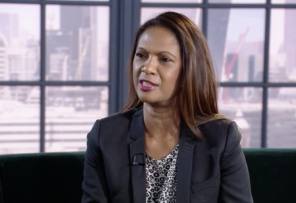

Almost a quarter (23 per cent) of people looking to remortgage are bracing themselves for a rate rise in the next year, according to conveyancing service provider LMS.
The figure has leaped from only 14 per cent of respondents in September as economic uncertainty takes hold amid growing speculation around inflation and the fallout from the Brexit vote.
In addition, the number that expect remortgage interest rates to decrease within the next year from a survey of 687 respondents polled in October fell from 9 per cent in September to just 6 per cent in October.
Andy Knee chief executive of LMS, said: “The lead up to Christmas, low-rates and greater anticipation of a rate rise within the next year is the driving force behind the decision of many to remortgage now.
"Economic and political uncertainty spreading as a fall-out from the UK’s vote to leave the EU has affected people’s priorities. More people are looking for long-term security. They want to ensure they know exactly what they will owe and when, while the terms of Brexit are battled out.”
The popularity of fixed five-year products more than doubled among those who switched their mortgage type: rising from just 8 per cent to 19 per cent. Average five-year fixed mortgage rates have fallen 0.51 per cent over the last year, outpacing two-year fixed mortgages which fell by 0.36 per cent in the same period.
But two-year fixed mortgages fell in popularity down from 37 per cent for a previous mortgage to 25 per cent currently.
There was a substantial drop in demand for interest-only mortgages, from 15 per cent who had this product before remortgaging to 5 per cent who do now.
According to the survey, in October, 89 per cent of remortgagors were able to lower their mortgage rate. The rate rose from 85 per cent in September as homeowners capitalised on record-low mortgage rates currently available in anticipation of a rise next year.
Three in five (60 per cent) of remortgagors were driven to take the action because they had come to the end of their current deal, down from 62 per cent in September suggesting homeowners had been slightly more proactive in October to take advantage of deals.
Almost a quarter of people remortgaging (23 per cent) said their primary reason for doing so was to lower their monthly mortgage payment. The average person who remortgaged for this reason was able to reduce their monthly payment by £238 a month, equal to £2,856 a year, while 17 per cent were able to lower their payment by £500 a month or more.
By reducing monthly outgoings, homeowners could free up cash to consolidate other debts, make home improvements or spend elsewhere.
The number of people remortgaging to pay off debts rose from 9 per cent in September to 14 per cent in October as people ready themselves for the cost of Christmas.
Almost three in five (59 per cent) remortgagors consulted a broker in October, up from 52 per cent in September driven by a lack of confidence in the ability to make the best possible savings.
People were less confident making decisions by themselves in October compared to the previous month: 36 per cent said they were confident enough to do this in October, down from 43 per cent who responded in September.
Daniel Hegarty, founder and chief executive at Habito, said: "More than two million people are sitting on standard variable rates (SVRs) in the UK and, according to research Habito carried out with YouGov, one-third of all mortgage holders would not remortgage for any amount of savings.
"While the base rate dip and the uncertainty of Brexit has certainly forced people to sit up and take more notice of their personal finances, there remains a significant proportion of the country who would rather keep their head in the sands than face the prospect of going through the mortgage application process again. This has to change.
"Our business is designed to ensure our consumers do not have to think about their mortgage again, we monitor the market and alert them to the best possible rate and make switching painless. That level of long-term security is what people need as the market finds its feet again over the next few years."



